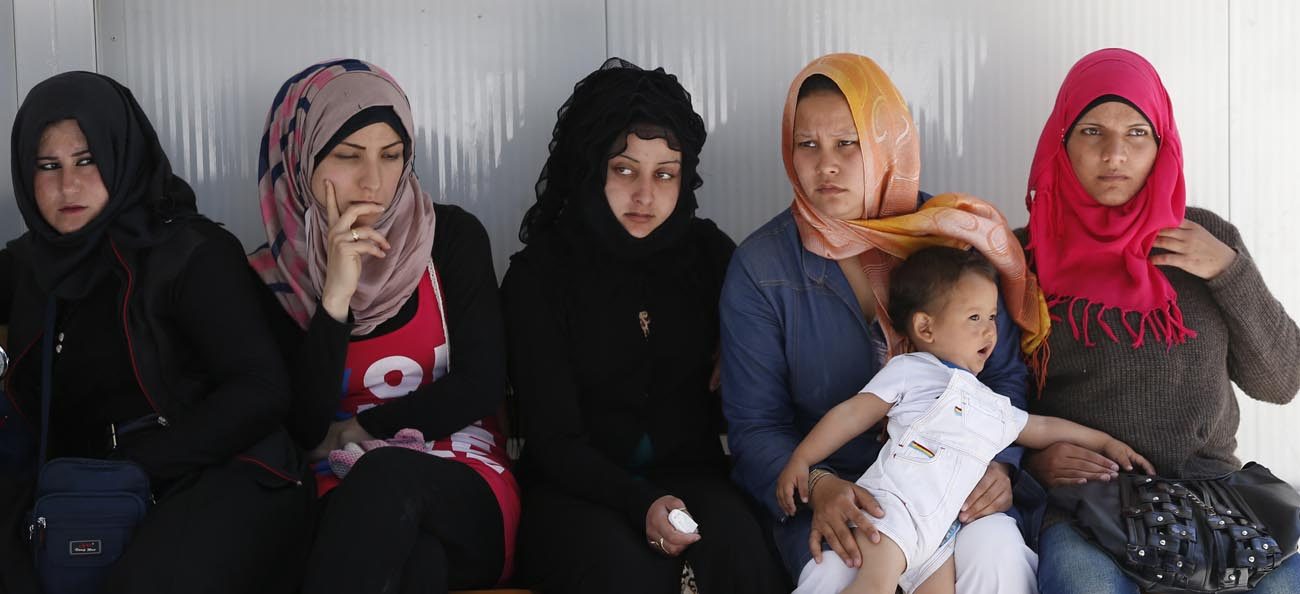VATICAN CITY (CNS) — By telling individual stories and putting a human face on migrants seeking a new home, the media can help inspire communities to assist and not be afraid of newcomers, said one U.S. bishop.
“One thing we really need to work on, especially in the United States, is to do advocacy work and education of the community because there is still a lot of resistance to the welcoming of the immigrant and refugees,” retired Bishop Ricardo Ramirez of Las Cruces, New Mexico, told Catholic News Service June 12.
“People are afraid. And I think we have to listen and understand where that fear comes from, but at the same time we have to educate people about human rights, about the church’s tradition” and how so many Americans are decedents of immigrants, he said on the sidelines of a meeting at the Vatican.
[hotblock]
Bishop Ramirez, who is a member of the U.S. Conference of Catholic Bishops’ Committee on Migration and Refugee Services, was one of dozens of bishops and directors of offices for migrants and refugees attending a special session sponsored by the Dicastery for Integral Human Development June 12-13.
Participants were crafting ideas and best practices for safeguarding the rights of refugees, migrants and trafficked persons. The strategies were going to be presented to Pope Francis for approval and then to a meeting working on a proposed U.N. global compact on migration.
Bishop Ramirez, who retired in 2013, was the first bishop of the Diocese of Las Cruces when it was erected in 1982. Las Cruces is less than 50 miles north of the border with Mexico and is the second-largest city in New Mexico.
The 80-year-old bishop recalled how the diocese mobilized to help hundreds of refugee children fleeing from Central America in 2014. His successor, Bishop Oscar Cantu, set up “Project Oak Tree” to offer assistance to these children and their mothers together with the Diocese of El Paso.
“The community was wonderful in their generosity, bringing baby clothes and diapers and things,” he said.
“They even brought cosmetics and earrings” for the women because they were going to be reunited with husbands after so many years and they wanted “to look good,” he said.
When asked how the program got such an outpouring of help and support from the community, Bishop Ramirez said, “I think the media helped us.”
“The media did human interest stories and it’s the human face of the migrant, not just numbers, not just the legislation,” speeches or slogans, “but real faces of people, that is what is going to convert” animosity or indifference into helping people in need, he said.
[hotblock2]
The bishop, who is a member of the Basilian Fathers, was born in in Bay City, Texas. Both his parents and their families were migrant workers in southern Texas.
“I preach a lot on hospitality,” he said, and on how “so many wonderful things happen when hospitality is extended,” and how the nation, communities and the church benefit from the welcoming of strangers.
A comprehensive and moral response to the large numbers of people fleeing their homelands because of violence, poverty or environmental degradation, he said, isn’t just about letting people in to fend for themselves. A local community needs to reach out and help newcomers navigate the new culture and bureaucracy so their basic needs can be met, he said.
For example, parishioners can act as sponsors, taking an active role in helping a new family enroll the children in school, find a dentist, get a doctor’s appointment, open a bank account, “simple things, we take for granted,” but which are critically important.
One way the church does that in the United States is through the Migration and Refugee Services’ program, “POWR,” which stands for Parishes Organized to Welcome Refugees.
“Catholic Charities locally across the country are very engaged with both the POWR parishes and other parishes and also with many volunteers” who help refugees and others, said Matthew Wilch, refugee policy adviser for the Office of Migration Policy of the USCCB, who also attended the Vatican conference.
“One thing that helps a lot is not just the support we can give,” but it is also helping immigrants and refugees build up their own networks of support and collaboration, he said.
“A lot of times it’s not just individuals who are coming, but it’s a whole community that’s coming” or a group that becomes a new community, Wilch said. Often together they can better confront the cultural challenges they face.
PREVIOUS: South African Council of Churches calls for dissolution of parliament
NEXT: Vatican bank reports $40 million profit in 2016




Share this story